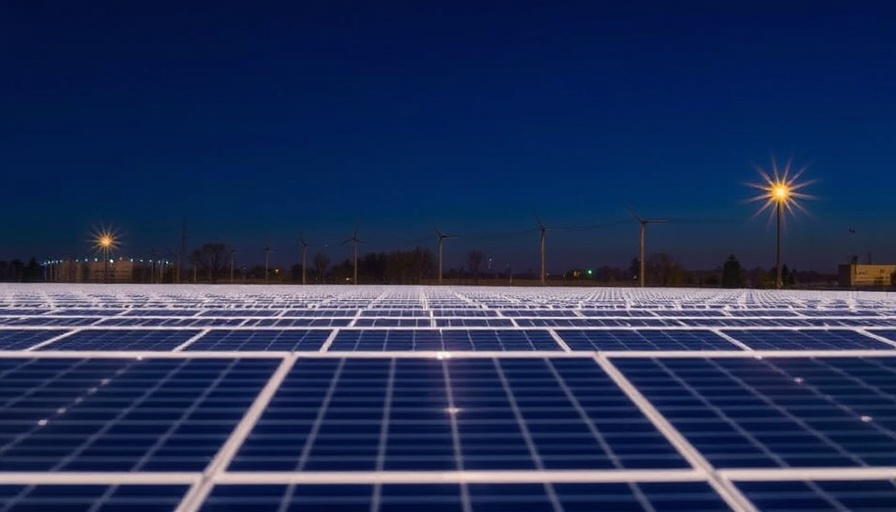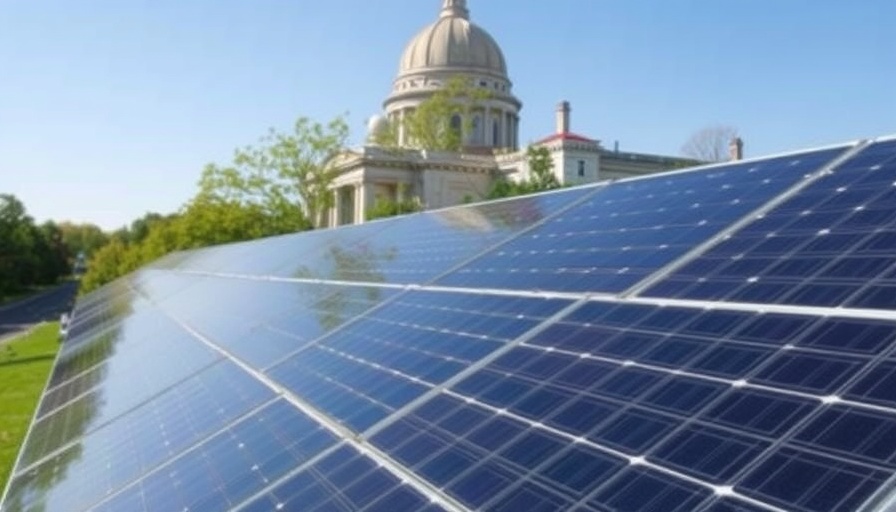
How Microsoft is Pioneering Renewable Energy for AI Infrastructure
Microsoft's recent decision to add 475 megawatts (MW) of solar power to its data centers is a significant leap forward in the push for sustainable energy solutions. This move not only reflects an increasing demand for clean energy in the tech sector but also illustrates how major companies are integrating renewable resources into their operational frameworks to support expansive initiatives, particularly in artificial intelligence (AI).
The Growing Role of Solar Energy
The rising trend of businesses adopting solar energy is about more than just reducing carbon footprints; it is also an economical decision for many companies. For Microsoft, the switch to solar energy to support its AI data centers aligns with a larger trend in the tech industry that prioritizes sustainability. Companies like Microsoft are recognizing that clean energy is not only beneficial for the environment but also offers long-term financial gains.
Exploring AI's Dependence on Data Centers
As AI continues to evolve, its dependence on robust data center operations increases. These centers require substantial energy to process vast amounts of data efficiently. Microsoft’s substantial investment in solar energy is aimed at supporting these operations while mitigating the associated environmental impact. By leveraging solar energy, Microsoft enhances the sustainability of its expansive cloud services and AI models.
Economic Advantages of Renewable Energy
Opting for solar power can significantly lower operational costs. The initial financial commitment can be offset over time by reduced energy bills and potential tax incentives. For homeowners and business owners, particularly those between 30 and 65 years old, investing in solar systems can boost property value while addressing rising energy costs. This added benefit makes solar not just an environmentally responsible choice but also a practical financial decision.
Future Predictions: A Shift Towards Greener Technology
Experts predict that as renewable energy technologies improve, the adoption of solar and other renewable sources will continue expanding across industries. Microsoft's bold commitment could set a precedent encouraging other corporations to follow suit, thereby accelerating the transition to sustainable energy sources. As this trend gains momentum, homeowners will likely see increased incentives and opportunities to embrace renewable energy in their own lives.
Counterarguments: The Challenges of Solar Adoption
However, it is essential to acknowledge the challenges that come with increased solar adoption. Critics often cite the significant upfront costs of installation, potential zoning issues, and reliance on weather conditions as barriers to widespread implementation. While these challenges are not insignificant, advancements in technology are making solar energy more accessible and cost-effective than ever before.
The Emotional Connection to Sustainability
For many, the significance of transitioning to solar energy is deeply personal. Homeowners motivated by ecological concerns or a desire to contribute positively to future generations often find a strong emotional value in these decisions. In addition to economic benefits, the act of installing solar panels connects individuals and businesses to a larger community striving for environmental sustainability.
Actionable Insights for Homeowners and Businesses
Homeowners and eco-conscious consumers looking to navigate the solar energy landscape can benefit from several actionable insights. First, researching local incentives and subsidies can uncover financial advantages. Second, evaluating different solar products can ensure choosing the right technology suited to specific energy needs. Finally, considering the addition of smart home technology can optimize energy usage, enhancing the overall benefits of adopting solar power.
Conclusion: The Future is Bright for Solar Energy
As Microsoft embraces solar energy to power its AI data centers, the ripple effects are likely to inspire homeowners, consumers, and businesses alike to consider similar moves. Understanding the implications of such a transition is critical in promoting a sustainable future. By considering solar, individuals take a significant step toward addressing high energy costs while simultaneously fostering an eco-friendly mindset.
 Add Row
Add Row  Add
Add 



 Add Row
Add Row  Add
Add 
Write A Comment